High-Impact Practices 2. From Rebranding to Enhancing User Experience: Transforming the Undergraduate Honors Thesis for Gen Z
Tamy Burnett, PhD, Associate Director, University Honors Program, University of Nebraska-Lincoln
In the last 15-20 years—notably the years during which today’s Gen Z college students were born and raised—cultural shifts, economic crises, and a global pandemic, have significantly influenced public perceptions about the value of higher education and about which majors are most desirable. These shifts have led to rapid increases in college majors with the most direct and easily-defined career pathways—the health sciences, business, and engineering. These changes can present challenges to Honors programs and colleges for which a key experience is the completion of an undergraduate research thesis. For many programs/colleges, an Honors thesis mimics graduate theses and dissertations in terms of process, expected output, and relationship to traditional research experiences. As proponents of this type of project explain, an undergraduate research thesis provides valuable preparation for students pursuing MA/ PhD degrees or professional programs such as law school. Equally, it can provide students with valuable experience managing an independent project to highlight in job applications—although the argument for the transferability of this experience may be more obvious to career academics than those interviewing newly-minted college graduates. Additionally, for many of the majors with the fastest-growing enrollments, traditional research experiences may not align with disciplinary-based best practices. In many cases, students instead engage in valuable project and team-based experiences that mimic relevant professional contexts and look very different from traditional academic research.
In turn, all of this can significantly impact Gen Z students’ perceptions of the value of completing an Honors education when a traditional thesis is required. While some Honors programs and colleges have moved away from a thesis requirement, the University Honors Program at the University of Nebraska-Lincoln has taken a different approach: a series of interconnected efforts to redefine and demystify the thesis, in a bid to retain more students through to graduation while maintaining the valuable, high-impact experience a thesis project offers. Nebraska is a land-grant R1 institution with a robust and vibrant landscape of research opportunities for undergraduates and nationally and highly ranked business, engineering, and health sciences programs. As enrollments in these areas have grown, major-based demographics among the Honors student body have similarly shifted. In response, the University Honors Program has made some targeted revisions to its rebranded “Honors Senior Project” requirement. These include 1) strategic alignment of Honors processes with college-based undergraduate thesis options, where relevant (half the institution’s academic colleges); 2) enhancing the “user experience” for students by dramatically revising, expanding, and digitizing resources to demystify the requirement; 3) relocating archiving practices to a digital space; and—perhaps most importantly—4) diversifying to include options beyond a traditional research thesis, while maintaining a foundation in research-based practices, creation of new knowledge, effective communication of that knowledge, and development of invaluable project management skills. This presentation will offer an overview of these changes and examples of successful strategies, which have contributed to record numbers of Nebraska Honors graduates each of the last three years.
